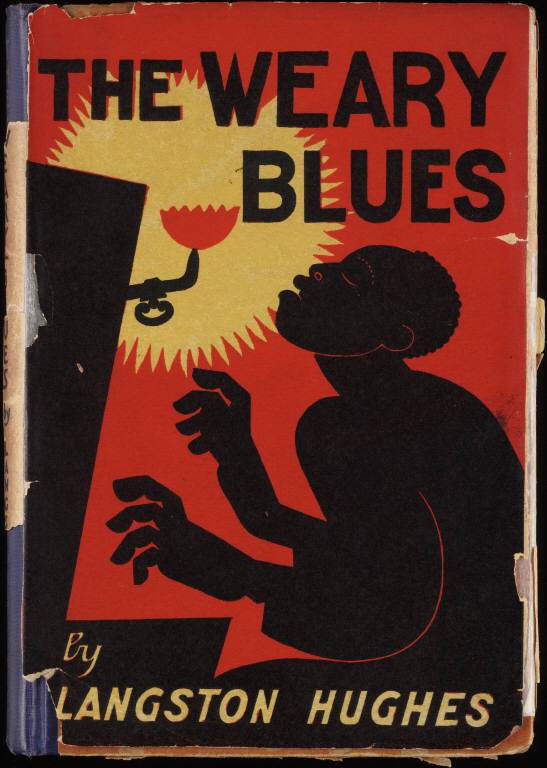
We know Langston Hughes as a celebrated African-American author of poems, essays, stories, memoirs and more. But Hughes also wrote songs-hundreds of them. Music was at the heart of his work, with jazz and blues informing the cadences, structures, and subject matter of many of his poems. In an early essay, "The Negro Artist and the Racial Mountain," he touted jazz and blues as a valid and vital expression of African-American identity in art; he was one of the few literary figures in the Harlem Renaissance to do so:
Most of my own poems are racial in theme and treatment, derived from the life I know. In many of them I try to grasp and hold some of the meanings and rhythms of jazz. I am sincere as I know how to be in these poems and yet after every reading I answer questions like these from my own people: Do you think Negroes should always write about Negroes? I wish you wouldn't read some of your poems to white folks. How do you find any thing interesting in a place like a cabaret? Why do you write about black people? You aren't black. What makes you do so many jazz poems?
But jazz to me is one of the inherent expressions of Negro life in America: the eternal tom-tom beating in the Negro soul-the tom-tom of revolt against weariness in a white world, a world of subway trains, and work, work, work; the tom-tom of joy and laughter, and pain swallowed in a smile. Yet the Philadelphia clubwoman is ashamed to say that her race created it and she does not like me to write about it.
"The Langston Hughes Songbook" features a diverse group of artists performing songs with lyrics written by Hughes. We'll hear:
- a live version of Nina Simone's 1960s anthem "Backlash Blues"
- The legendary stride pianist James P. Johnson playing the one period recording from a long-lost "blues opera" that he and Hughes wrote
- Johnny Mercer and June Christy offering their takes on Hughes' musical collaborations with famed composer Kurt Weill
- Abbey Lincoln's recording of Hughes and jazz pianist Randy Weston's "African Lady"
- Hughes' own spoken-word encounters with bassist Charles Mingus
- Muddy Waters' live 1960 performance of Hughes' "Goodbye Newport Blues," written in response to what appeared to be the end of the Newport Jazz Festival
- saxophonist-singer Gary Bartz's grooving feel-good adaptation of Hughes' first-ever published poem
- Folk-blues singer Josh White's rendition of a Hughes World War II propaganda song with a racial-integration subtext
More About Langston Hughes and Jazz
- Blues in Stereo: the Texts of Langston Hughes in Jazz Music
- The backstory on Randy Weston's UHURU AFRIKA
- De Organizer (Hughes' and James P. Johnson's blues opera)
Outtakes
- When Hughes went to the Soviet Union in the early 1930s, he carried around a victrola to play jazz records.
- In 1940 CBS asked Hughes to submit scripts for the series The Pursuit of Happiness. Hughes submitted his and Johnson's De Organizer, but CBS rejected it, saying it was "too controversial for us to give it an emotional treatment on an essentially dramatic show."
- Randy Weston told scholar W.S. Tkweme that he asked Hughes to contribute lyrics and liner notes to his 1960 Uhuru Afrika album because ""Langston Hughes was the only one of our writers who wrote about the music."
- Nina Simone recorded the George Bass song "See Line Woman" at Hughes' behest
- In his last will and testament, Hughes asked that a jazz combo perform at his funeral. Randy Weston led a group performance in honor of his wish.
Watch Betty Carter perform Hughes and Weill's "Lonely House":









